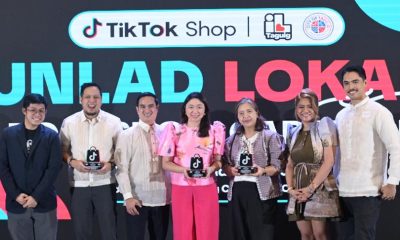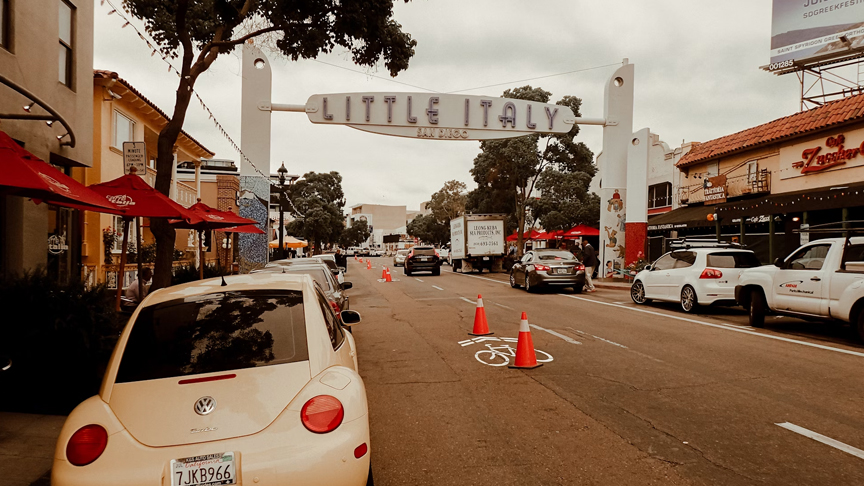In our increasingly polarized society, more people may find themselves in a workplace where they are one of the few conservatives or few liberals around.
A new study found that those whose values – political or otherwise – don’t match the majority in their organization felt they received less respect and as a result were less engaged at work. Moreover, their co-workers noticed their lack of engagement.
“It is a real issue that organizations face,” said Tracy Dumas, lead author of the study and associate professor of management and human resources at The Ohio State University’s Fisher College of Business.
“Organizations know that it is valuable to have employees with different perspectives. But if those with different perspectives feel they aren’t respected and so aren’t fully participating in their jobs, organizations aren’t fully reaping the benefits of their unique perspectives.”
But the study did find a way that “value minorities” could feel more a part of their teams: by disclosing personal information about themselves to their colleagues that had nothing to do with the values about which they disagreed.
The study was published recently in the journal Organization Science.
“Value minorities” were defined as those whose core beliefs involving politics, religion or other important areas of life clash with the majority of people in their organizations.
Dumas emphasized that the study examined values, not opinions. Values can inform opinions, but values are harder to change because they are embedded in the person’s sense of self – they transcend individual issues.
The researchers conducted studies among full-time adult employees in an online setting, a student project group that worked together over a semester, and undergraduate students in the laboratory, all with similar results. The study of 389 full-time workers was conducted online. Participants read a workplace scenario where they imagined themselves working closely with colleagues of the same rank on a workgroup. Some were told that their values clashed with co-workers on issues like communal responsibility, individual liberty, and safety and security. Others were told their values were similar.
To get at the importance of self-disclosure, some were told they often talked with colleagues about non-work topics like what they did over the weekend, including spending time with a friend, trying a new restaurant in town and talking about their favorite things on the menu. Others were told that they rarely discussed personal topics and usually only talked about work. Both groups were told they did not discuss their personal values. All participants then reported if they felt their colleagues would respect them on a scale of 1 (strongly disagree) to 7 (strongly agree).
Participants were then told about an important group meeting coming up in which they would be discussing how to secure a new and important client. Participants rated how much they believed they would be engaged in the meeting through statements like “I would exert my full effort” and “My mind would be focused while completing work in my group.”
The results showed the importance of self-disclosure in helping value minorities perform better in the workplace, Dumas said.
Those in the minority who were told that they shared information about their personal life – such as what they did over the weekend – anticipated feeling more engaged than those value minorities in the non-disclosure condition.
Self-disclosure helped boost engagement among value minorities by increasing the respect they anticipated from their colleagues, the results showed.
Similar results were found among 277 undergraduate students working in real-life teams who were surveyed three times in a seven-week period over one semester. They were surveyed about their values, and how much they felt their values clashed with others on their team. They also reported on the respect they felt from others on their teams and how much they talked about themselves.
All the findings revealed in the lab experiment were also found in this real-life work group. One key here was that team members rated how engaged each person was on their team project.
“We found that others on the team noticed that people whose values clashed with the majority didn’t engage as much in the work of the group,” Dumas said. “But that negative effect was lessened if the value minorities talked about themselves in the group.”
The key in all the studies was the importance of people talking about themselves in the workplace – not about areas where they disagree, but just about their everyday life experiences.
“What happens is that when people talk about themselves, they feel more respected – and they feel invested in the success of the group, they feel engaged,” she said.
Dumas said self-disclosure helps because it “humanizes” value minorities to the group.
People may feel uncomfortable being a part of a work group that doesn’t share their values, she said. But if they pick out something they do feel comfortable sharing with the group, it can create a connection.
“When you talk about your family or the movies you like or what you did this week, it shows you’re a whole person, you’re not just defined by the difficult areas where you disagree,” she said. “Even if you don’t agree with others on your favorite movies, or what restaurants you like, that’s not a difficult conversation to have.”
One of the best parts of using self-disclosure to help value minorities feel more respected and engaged in the workplace is that they don’t need any management intervention to make it happen.
“If you’re a value minority, you’re not at the mercy of your manager to make things better. Self-disclosure is a step that you can take to mitigate the negative effects of feeling that you’re in the minority,” Dumas said.
Importantly, however, the paper notes the importance of organizations creating an environment where people feel comfortable disclosing.
Dumas conducted the study with Robert Lount, professor of management and human resources at Ohio State’s Fisher College, and Sarah Doyle, who received her PhD at Ohio State’s Fisher College and is now an assistant professor at the University of Arizona.


 BizNews7 hours ago
BizNews7 hours ago
 BizNews12 hours ago
BizNews12 hours ago
 BizNews12 hours ago
BizNews12 hours ago
 BizNews8 hours ago
BizNews8 hours ago
 BizNews6 hours ago
BizNews6 hours ago
 BizNews5 hours ago
BizNews5 hours ago
 BizListing3 weeks ago
BizListing3 weeks ago
 Tech & Innovation4 weeks ago
Tech & Innovation4 weeks ago













